Which CRM for eCommerce? A Quick Guide
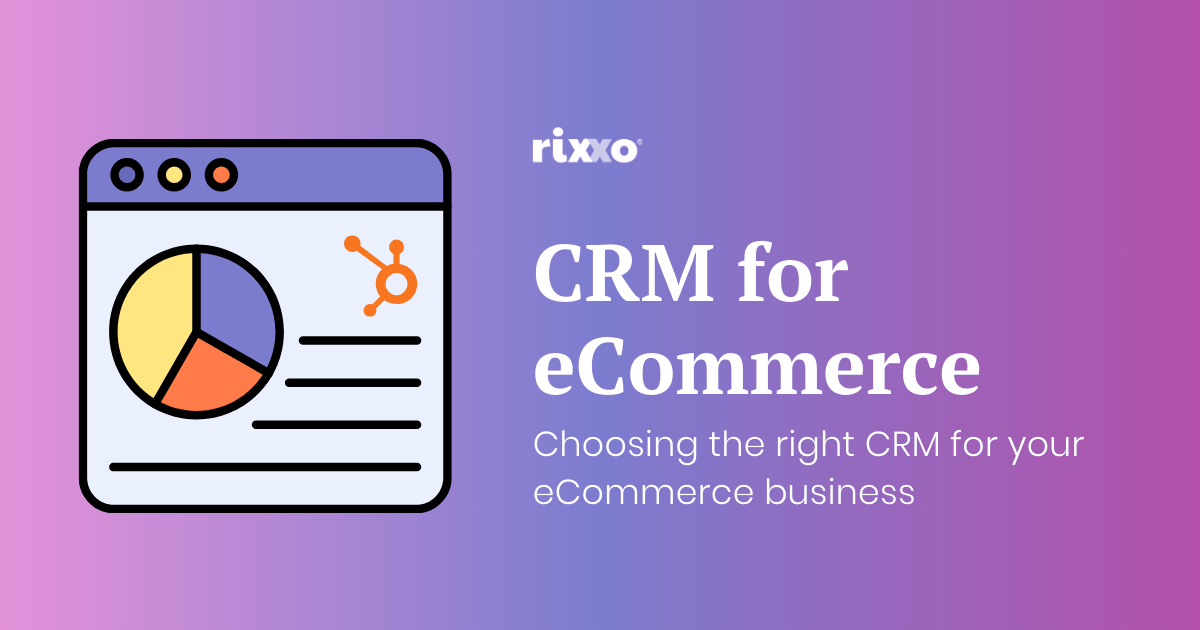

CRM stands for Customer Relationship Management. It refers to a strategy and a set of technologies used to manage a company’s interactions with its customers and potential customers.
What does a CRM for eCommerce do?
At its heart, a CRM system helps businesses build stronger customer relationships, make operations smoother, and increase profits. By keeping track of and analysing all the company’s interactions with its customers, a CRM system improves how it serves them, strengthens their loyalty, and helps sell more products. A CRM for eCommerce helps ensure that every customer feels appreciated and well-understood.
To provide great service, your team needs access to customer data, their needs and preferences plus buying and contact history. Having a centralised system in place that enables this empowers your business to be informed and maintain strong relationships.
At this point, it’s probably obvious what the benefits of a CRM are to your eCommerce business, but to summarise:
- Enhanced customer relations: In providing a better understanding of customer needs and behaviours, businesses can enhance customer interactions, leading to greater satisfaction and loyalty.
- Increased sales: CRM systems help businesses streamline their sales processes, build a sales pipeline, automate key tasks, and analyse sales data to forecast sales effectively.
- Improved efficiency: Automating routine tasks and aligning inter-departmental workflows leads to improved efficiency and productivity.
- Data-driven decision-making: With consolidated data on customers and their interactions, businesses can make informed decisions, supported by real-time data analytics.
How does a CRM work?
A CRM system collects data from multiple communication channels, including websites, email, live chat, marketing materials, social media, and field sales interactions. It stores this data and makes it easily accessible for your team via a user-friendly front-end dashboard. Salespeople, as a direct communication channel, play a crucial role in gathering valuable customer insights and feedback.
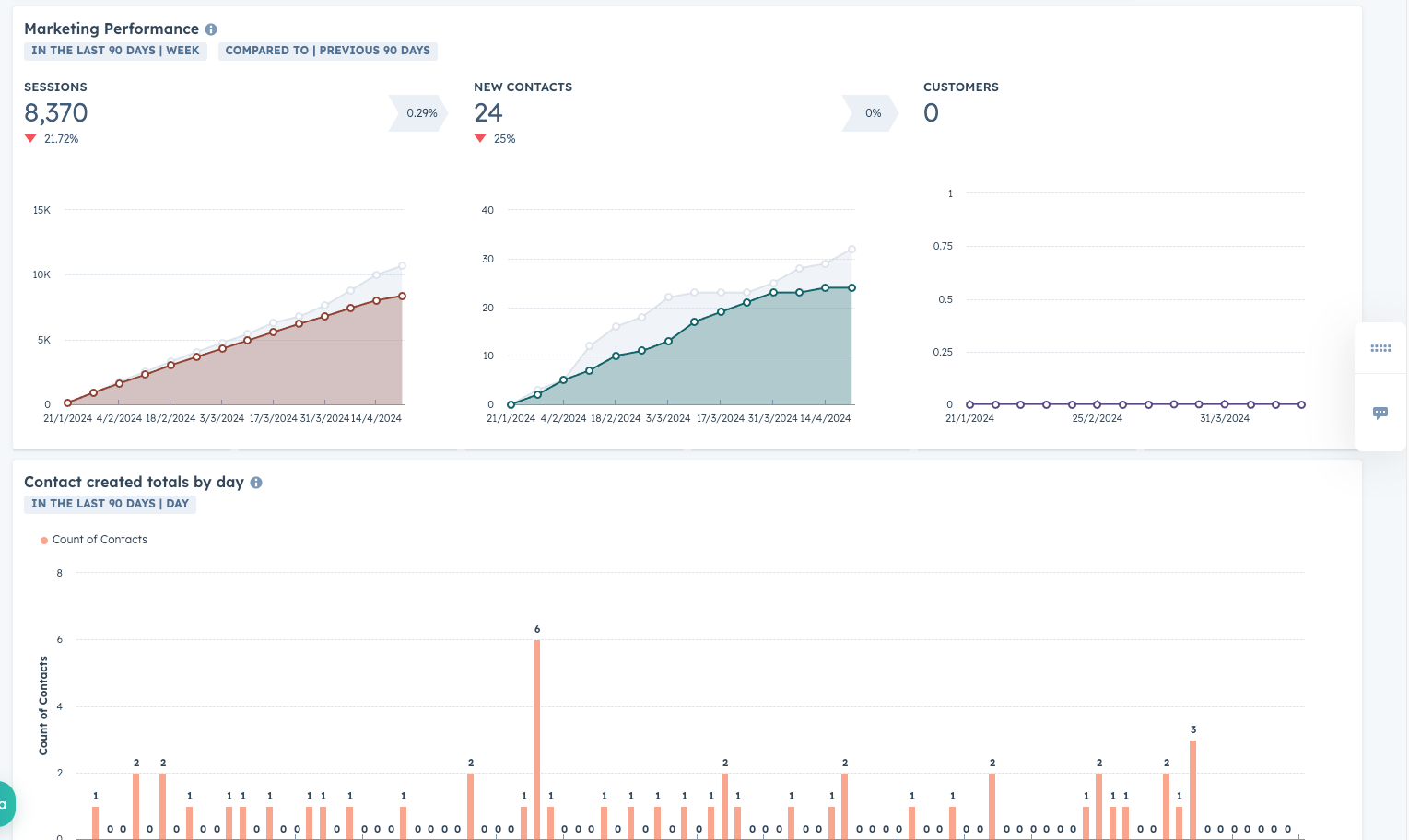

What makes a CRM good for eCommerce?
While CRMs are designed for many different industries, not every CRM is suited to meet the unique challenges of eCommerce. For your CRM to improve how you interact with customers, it should be capable of collecting, organising, and analysing information from every stage of customer interaction, from the first visit to follow-up after a purchase.
The key differences between a traditional CRM and an eCommerce CRM revolve around the shift of focus on consumer behaviour, sales environments, and data use. Here’s a breakdown of the main distinctions:
Data collection and usage
Traditional CRM: Collects a broad range of data from direct interactions, such as meetings, phone calls, and emails. The emphasis is on managing leads, opportunities, and customer accounts over long sales cycles.
eCommerce CRM: Collects real-time data, primarily from web interactions, including click-through rates, browsing patterns, shopping cart behaviour, and purchase history. This data is crucial for setting up marketing automation and personalisation.
Integration with other platforms
Traditional CRM: Integrates with a variety of business systems including email, calendar, marketing automation, and customer service tools. Integration is often generalised to suit a range of industries.
eCommerce CRM: In addition to integrating with other business systems, integrates with eCommerce platforms (like Shopify, Magento, WooCommerce), payment systems, and other tools directly related to online selling. This integration is deeper in terms of tracking user activity from the first click to purchase and post-purchase follow-up.
Marketing automation
Traditional CRM: Supports broad marketing campaigns tailored to both prospective and existing customers. Automation can include emails, social media posts, and event reminders.
eCommerce CRM: Highly focused on conversion-driven campaigns, such as abandoned cart emails, upselling and cross-selling based on user behaviour, and dynamic pricing adjustments.
Customer service
Traditional CRM: Handles a range of customer service scenarios across different channels, often without a direct link to immediate sales.
eCommerce CRM: Tightly linked to customer service features directly affecting sales, such as live chat support during the buying process, automated help for checkout issues, and rapid response systems for online inquiries.
Analytics and reporting
Traditional CRM: Provides comprehensive reports on sales trends, pipeline forecasts, and productivity assessments. The focus is often on optimising the sales process and improving team performance.
eCommerce CRM: Offers detailed analytics on customer journeys, conversion rates, and A/B testing results of specific products or pages. The goal is to react quickly and adapt to consumer preferences and behaviours online.
Choosing the right CRM for your eCommerce business


Not to brag, but as an eCommerce agency with over ten years in the game, we’re pros at helping eCommerce brands find the right tech for their specific needs. We begin by getting to know your business, asking the right questions, and using our team’s vast experience to suggest the best tools.
So how do you find the right CRM for your eCommerce business?
It’s a decision that multiple factors, including the size of your business and specific operational needs, should inform. Let’s look in more detail.
Understand the scale of your business
Small eCommerce businesses may need a CRM that is simple, easy to implement, and budget-friendly. These businesses typically require basic CRM functionalities like customer data management, email marketing, and perhaps some level of automation.
Medium-sized businesses often face more complex requirements and may benefit from CRMs that offer advanced reporting features, increased automation capabilities, and more robust customer service tools to handle a larger customer base.
Large enterprises will likely need a highly customisable CRM that can integrate well with other enterprise-level systems (such as ERP systems) and handle complex data analytics, multi-channel marketing, and extensive customer engagement strategies.
Assess your specific needs
Integration capabilities: Choose a CRM that integrates well with your existing eCommerce platforms and tools. Good integration helps maintain consistent data across all channels and enhances the efficiency of your operations.
Customer service tools: If your business model relies heavily on customer service, select a CRM that offers strong support tools such as live chat integration, automated ticketing systems, and customer feedback collection.
Marketing automation: For businesses that emphasise marketing and customer acquisition, choose a CRM that supports advanced marketing automation tools. These can help tailor marketing campaigns to individual customer behaviours and preferences.
Analytics and reporting: Access to detailed analytics can help you better understand your customer behaviours and refine your sales strategies. Ensure the CRM you choose can provide comprehensive reporting features that are easy to understand and use.
Trial and evaluation
Most CRM providers offer a trial period. Use this opportunity to explore how well the CRM system fits with your operational processes and meets your expectations. Ensure that during the trial period, you check how intuitive and user-friendly the interface is and whether it integrates well with your other systems.
Seek feedback and reviews
Before you make your final choice, it’s a good idea to read reviews and ask for opinions from other businesses like yours. Learning from their experiences can give you useful information about how reliable and effective the CRM systems you’re thinking about really are.
If you take your time and think carefully about these points, you can pick a CRM system that works well for your business now and can grow with it in the future. This choice will help you get more value for your money and make your customers happier.
3 examples of CRM for eCommerce
Here’s a quick look at some popular CRM systems that many eCommerce businesses choose because of their strong features and flexibility:
Salesforce
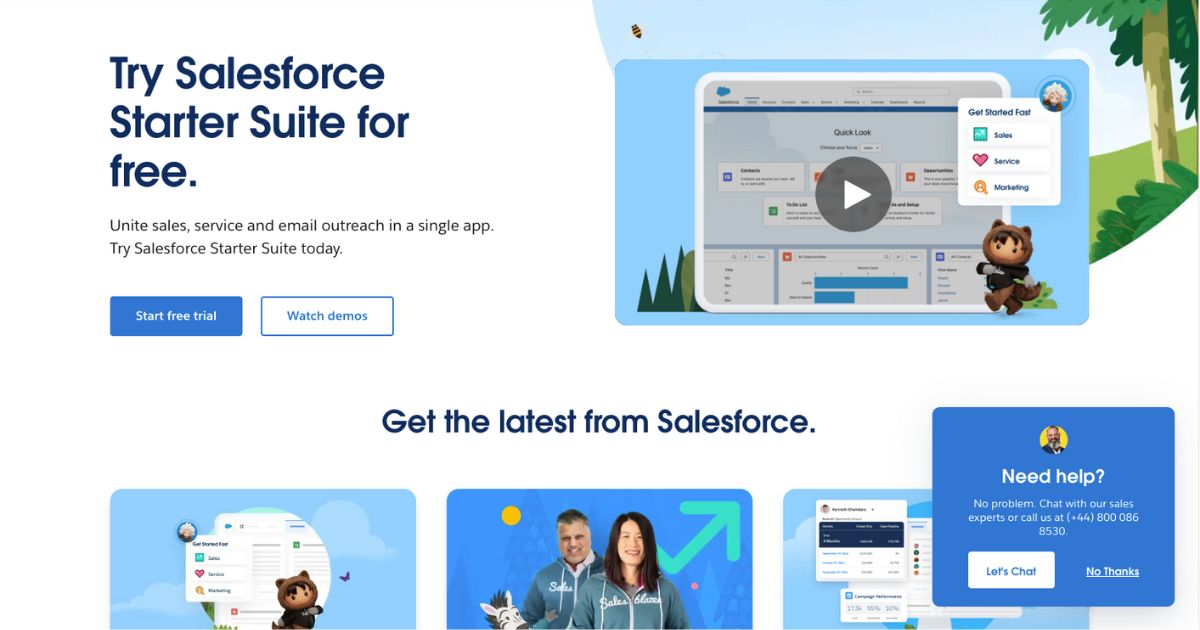

Overview: Salesforce is one of the most powerful and widely recognised CRM systems globally. It offers extensive customisation options, a vast array of features, and advanced capabilities in customer relationship management.
Key Features: Salesforce provides comprehensive customer insights, multi-channel marketing, sales automation, and advanced analytics tools. It also boasts a large ecosystem of third-party apps through its AppExchange.
Best for: Large businesses or rapidly growing SMEs that need a scalable, feature-rich CRM capable of handling complex customer data and interactions across multiple channels.
HubSpot
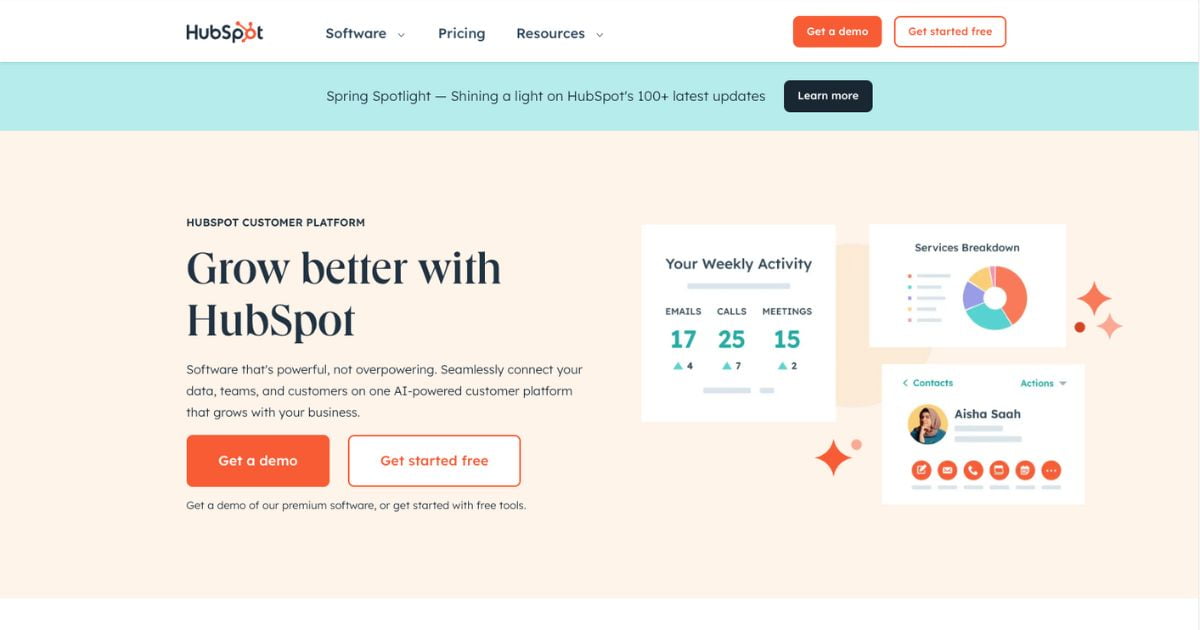

Overview: Known for its user-friendly interface and initial free tier, HubSpot serves businesses of all sizes, integrating CRM, marketing, sales, and service hubs in one platform.
Key Features: HubSpot offers tools for email marketing, social media campaigns, lead tracking, and customer service, all powered by a central database that keeps track of every customer interaction.
Best for: SMEs looking for an all-in-one solution to manage their customer relationships, with scalability options as they grow.
Zoho CRM
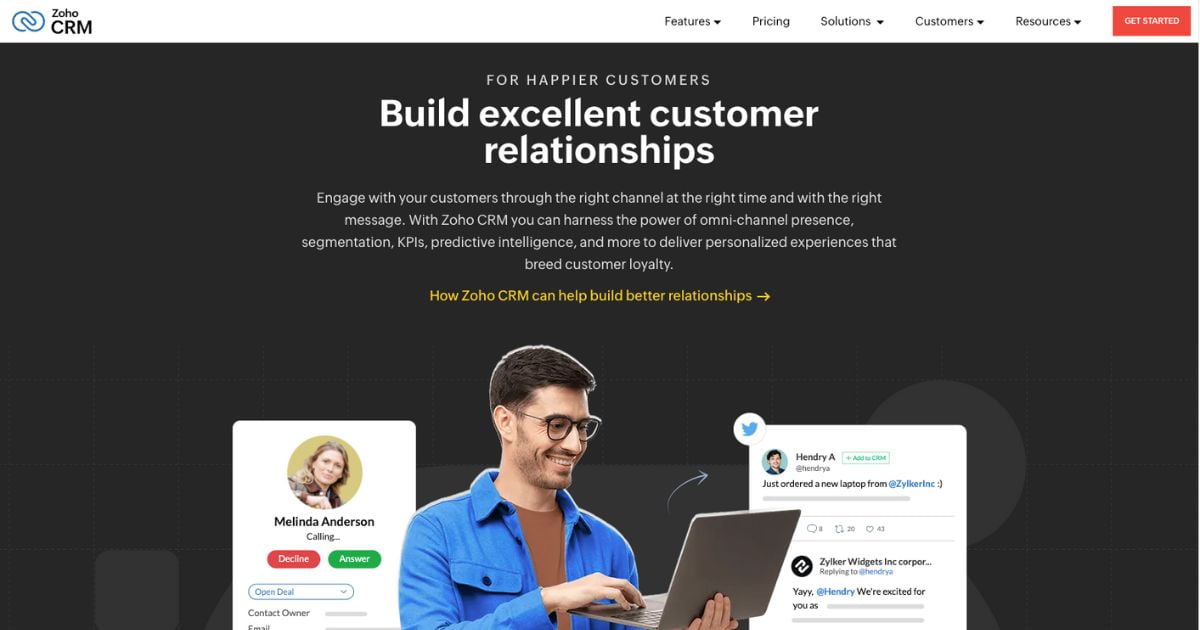

Overview: Zoho CRM is part of the larger suite of Zoho applications. It’s designed to attract businesses with its affordability and flexibility, offering a good balance of features and ease of use.
Key Features: Features include sales automation, lead management, omnichannel communications, and performance analytics. Zoho also integrates well with other Zoho products and numerous external apps.
Best for: Small to medium-sized businesses that need a cost-effective CRM solution with strong automation capabilities and decent customisation options.
Each of these CRM systems offers distinct advantages, and the best choice for your eCommerce business will depend on specific factors such as your budget, size, and particular operational needs. It’s advisable to take advantage of free trials and demos offered by these platforms to see which one aligns best with your business strategies and goals.
Conclusion: Investing in a CRM for eCommerce is a smart business move
Investing in a CRM system can transform your eCommerce business, boosting sales and streamlining operations. This powerful tool enhances how you understand and manage customer relationships, turning every interaction into a growth opportunity. By automating routine tasks, a CRM frees up your time and collects essential data about your customers’ preferences and behaviours. This insight allows you to craft marketing strategies that truly resonate with your audience, better meeting their needs and wants.
With a CRM, you actively forge deeper, more meaningful connections with your customers. You understand their journey better, anticipate their needs, and precisely meet their expectations. Embracing a CRM system is a smart, strategic move that positions your business as a customer-centric leader, ensuring satisfaction and loyalty.
